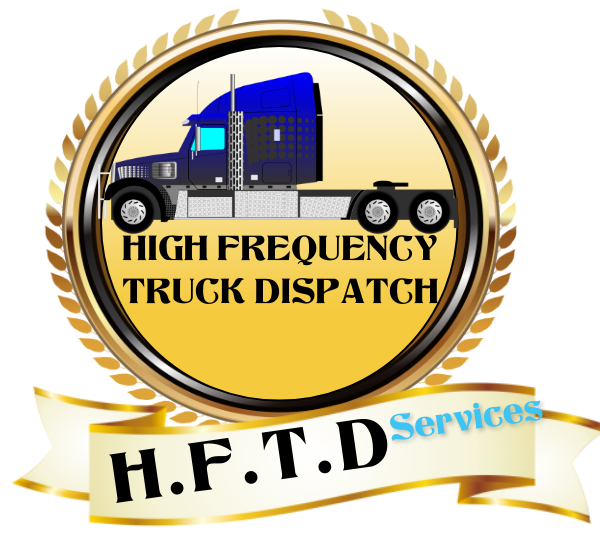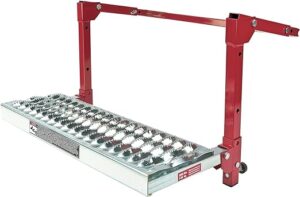| Table 1: Outline of the Article |
|---|
| Introduction |
| Definition of a Truck Dispatcher |
| Role and Responsibilities of a Truck Dispatcher |
| Benefits of Having a Truck Dispatcher |
| 1. Improved Efficiency and Productivity |
| 2. Effective Route Planning and Optimization |
| 3. Enhanced Communication and Coordination |
| 4. Reduced Costs and Increased Profitability |
| 5. Better Customer Service |
| 6. Compliance with Regulations |
| 7. 24/7 Support and Emergency Assistance |
| 8. Time and Stress Management |
| Challenges Faced by Truck Dispatchers |
| Conclusion |
| FAQs |
|---|
What are the Benefits of Having a Truck Dispatcher?
In the world of logistics and transportation, efficient coordination is paramount for businesses to thrive. One essential role that contributes to the smooth operation of a trucking company is that of a truck dispatcher. A truck dispatcher acts as the backbone of the organization, ensuring seamless communication, effective route planning, and timely deliveries. In this article, we will explore the benefits of having a truck dispatcher and how they can positively impact the overall efficiency and profitability of a trucking business.
Introduction
In today’s competitive market, trucking companies face numerous challenges such as rising fuel costs, increasing customer demands, and complex regulatory requirements. To overcome these obstacles, many businesses are turning to truck dispatchers to streamline their operations and optimize their resources. A truck dispatcher plays a crucial role in managing the logistics and ensuring the smooth movement of goods from one location to another.
Definition of a Truck Dispatcher
A truck dispatcher is a professional responsible for coordinating and managing the movement of trucks, drivers, and cargo. They act as a bridge between the truck drivers and the customers, ensuring that deliveries are made on time and according to the customers’ requirements. Truck dispatchers possess excellent organizational skills, strong communication abilities, and in-depth knowledge of the transportation industry.

Role and Responsibilities of a Truck Dispatcher
Truck dispatchers undertake a range of responsibilities to ensure the efficient operation of a trucking business. These responsibilities include:
- Scheduling and Routing: Truck dispatchers create schedules for drivers, assign routes, and plan deliveries based on factors such as distance, traffic conditions, and delivery deadlines.
- Communication: They maintain constant communication with truck drivers, providing them with detailed instructions, updates, and any necessary changes to the delivery plans.
- Monitoring: Truck dispatchers monitor the progress of each delivery, track the location of trucks, and ensure compliance with regulations, including hours of service and rest periods for drivers.
- Problem-solving: They handle any unexpected issues that may arise during a delivery, such as traffic congestion, accidents, or breakdowns, by providing alternate routes or arranging for roadside assistance.
- Documentation: Truck dispatchers maintain accurate records of deliveries, including invoices, bills of lading, and proof of delivery. They also handle any necessary paperwork for customs or regulatory purposes.

Benefits of Having a Truck Dispatcher
Having a truck dispatcher can bring numerous advantages to a trucking business. Let’s explore some of the key benefits in detail:
1. Improved Efficiency and Productivity
With a dedicated truck dispatcher managing the logistics, trucking companies can experience improved efficiency and productivity. Dispatchers ensure that drivers are assigned optimal routes, minimizing unnecessary detours and reducing fuel consumption. By optimizing delivery schedules and coordinating multiple shipments, they help maximize the capacity of each truck and reduce empty miles.
2. Effective Route Planning and Optimization
Truck dispatchers excel in route planning and optimization. By utilizing advanced software and real-time traffic information, they can identify the most efficient routes, avoiding congested areas and potential delays. This leads to reduced delivery times, improved customer satisfaction, and enhanced operational efficiency.
3. Enhanced Communication and Coordination
Clear and constant communication is vital in the trucking industry, and truck dispatchers excel in this area. They serve as a central point of contact for drivers, customers, and other stakeholders, ensuring that everyone is well-informed about the progress of deliveries. Effective communication and coordination minimize misunderstandings, delays, and errors, fostering strong relationships with customers and drivers alike.
4. Reduced Costs and Increased Profitability
Truck dispatchers help reduce costs and increase profitability for trucking companies. Through effective route planning and optimization, they minimize fuel expenses and vehicle wear and tear. Additionally, dispatchers monitor driver performance, ensuring compliance with fuel efficiency standards and identifying areas for improvement. By maximizing truck utilization and minimizing operational costs, trucking businesses can significantly improve their bottom line.
5. Better Customer Service
Truck dispatchers play a crucial role in providing excellent customer service. They act as a point of contact for customers, addressing their queries, concerns, and delivery requirements. Dispatchers keep customers informed about the progress of their shipments, providing real-time updates and resolving any issues promptly. By offering reliable and transparent communication, trucking companies can build strong customer relationships, leading to repeat business and positive referrals.
6. Compliance with Regulations
The trucking industry is subject to various regulations and compliance standards. Truck dispatchers ensure that drivers adhere to these regulations, such as hours-of-service limits and vehicle maintenance requirements. By staying up-to-date with the latest regulations and enforcing compliance, dispatchers help trucking businesses avoid penalties, legal issues, and reputational damage.
7. 24/7 Support and Emergency Assistance
Truck dispatchers provide round-the-clock support and emergency assistance to drivers. They are available to handle any unforeseen circumstances, such as breakdowns, accidents, or changes in delivery schedules. By promptly addressing emergencies and offering timely solutions, dispatchers ensure minimal disruptions to the delivery process and maintain a high level of service reliability.
8. Time and Stress Management
By delegating the responsibility of logistics management to a truck dispatcher, trucking company owners and managers can focus on core business activities. Dispatchers handle the time-consuming tasks of scheduling, routing, and communication, allowing business owners to allocate their time and resources more effectively. This enables better stress management and improves overall work-life balance for trucking professionals.

Challenges Faced by Truck Dispatchers
While truck dispatchers provide invaluable support to trucking businesses, they also face various challenges. These challenges include:
- High-pressure environment: Dispatchers often work in high-pressure environments, handling multiple deliveries, driver issues, and unexpected emergencies simultaneously.
- Communication complexities: Effective communication can be challenging due to language barriers, technological limitations, and a wide range of stakeholders involved in the transportation process.
- Complex logistics: Coordinating multiple shipments, dealing with changing customer requirements, and optimizing routes in real-time can be complex and require excellent problem-solving skills.
Despite these challenges, skilled truck dispatchers can overcome them and contribute significantly to the success of a trucking business.
Conclusion
In conclusion, having a truck dispatcher offers numerous benefits to trucking companies. From improved efficiency and productivity to effective route planning and enhanced customer service, a skilled dispatcher can optimize operations, reduce costs, and increase profitability. By providing 24/7 support, ensuring compliance, and managing logistics complexities, truck dispatchers play a vital role in maintaining a competitive edge in the transportation industry.
FAQs
Q1. What qualifications and skills should a truck dispatcher have? A truck dispatcher should possess excellent organizational skills, strong communication abilities, and a good understanding of the transportation industry. Knowledge of logistics software, problem-solving skills, and the ability to work under pressure are also crucial.
Q2. Can a truck dispatcher work remotely? Yes, with advancements in technology and the availability of cloud-based software, truck dispatchers can work remotely. This flexibility allows for efficient coordination and communication with drivers and customers, regardless of physical location.
Q3. How can a truck dispatcher contribute to cost savings? Truck dispatchers can contribute to cost savings by optimizing routes, minimizing fuel consumption, reducing empty miles, and identifying areas for improvement in driver performance. These measures help lower operational costs and increase overall profitability.
Q4. Is it necessary for small trucking companies to have a truck dispatcher? While small trucking companies may have fewer resources, having a truck dispatcher can still be beneficial. Dispatchers can help with efficient route planning, effective communication, and ensuring compliance, which are crucial aspects for any trucking business, regardless of its size.
Q5. How does a truck dispatcher handle emergencies and unforeseen events? Truck dispatchers are trained to handle emergencies and unforeseen events. They have protocols in place for situations such as breakdowns, accidents, or changes in delivery schedules. Dispatchers coordinate with drivers, provide alternative solutions, and arrange for necessary assistance to minimize disruptions.







No Responses